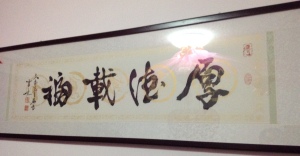This piece of writing is to fulfil the #EdBlogNZ challenge that has been set.

A)Whānaungatanga is my #OneWord2016. I find it interesting how my efellow11 inquiry unpacked Hyperconnectivity. The space between the nodes. The stuff that cannot be seen yet is vital for learning. Last year as part of EdBookNZ I undertook Team #Whānaungatanga. From the blog posts of my team the following list of words surfaced using Wordle. I added Va Fealofani as this also explains Whānaungatanga. I chose Whānaungatanga as my #OneWord2016 because I am the educator who connects, collaborates, co creates and supports others to be vocal digitally. I thrive in the digital environment so much so that my digital life blurs with my real life. By keeping a focus on Whānaungatanga I will recap the importance of hyperconnectivity. I will sit through meetings face to face, eye to eye, breath to breath to get a full understanding of the people I am working with. ( Me hui kanohi ki te kanohi kia rongo i te mauri o te tangata!’ )
- relationships
- people/tangata
- community
- respect
- whanau
- contributing
- learners/ ākonga
- va fealofani
- society
- working together
As my understanding of Whānaungatanga grows so does my understanding of sustainability. Therefore I will also be focusing more on Travelwise at Newmarket School and the part we play on Global Warming.
B)Aging Parents

I look after my parents and so have added them to my goal as a focus that I had promised to make their golden years, just that, golden. I am writing both their stories starting with dad.
C) Learn Mandarin

I have been accepted into the Language Teaching Consolidation Programme. One criteria is to learn and teach a new language. I have chosen Mandarin. At the same time this is Whānaungatanga because predominantly the children I work with are Mandarin speakers and one positive way of building relationships is speaking the language of the children I teach. I also know the challenges of learning a new language so that I may better emphasise with them. This year I am also the lead teacher for the ALLIS cluster for Newmarket School. This is a ministry initiative ‘Asian Language Learning in Schools.‘ Our school is part of the Epsom/Remuera group.
D)Community
Keep focusing on a community of learners. I now have several I am leading or involved with at administration levels.
- #TeachMeetNZ,
- #EdBookNZ,
- #EdBlogNZ,
- #SOLOTaxonomy,
- #FlatConnections
- #NPSFab
E) Health & Well Being

Keep my eye on my FitBit Dial and aim for a minimum of 10,000 steps per day. Keep walking to and from school. At the moment I have recently shifted back home after having renovations and my steps are not where they were.
And you what will you keep as target practice for 2016?


